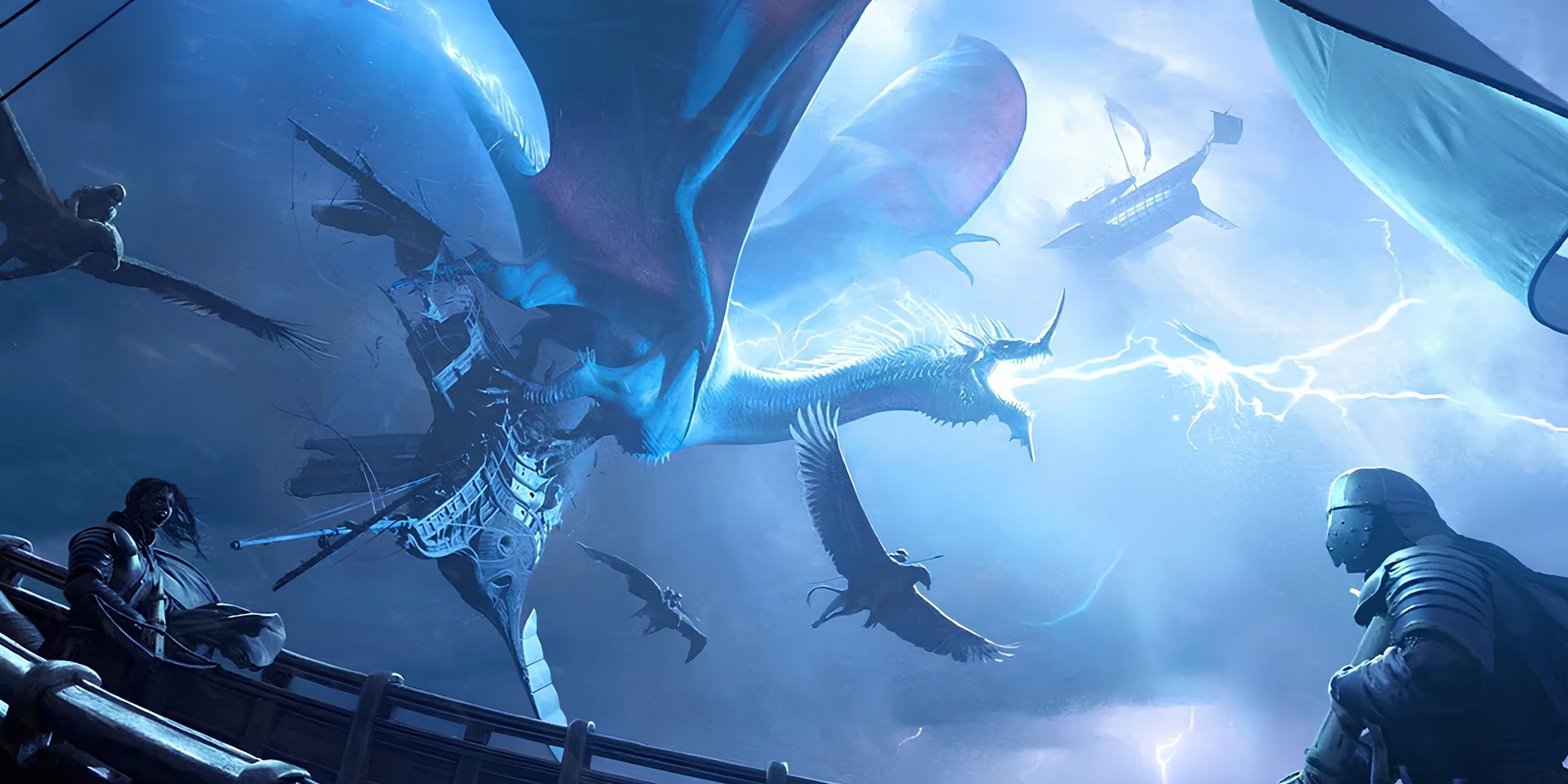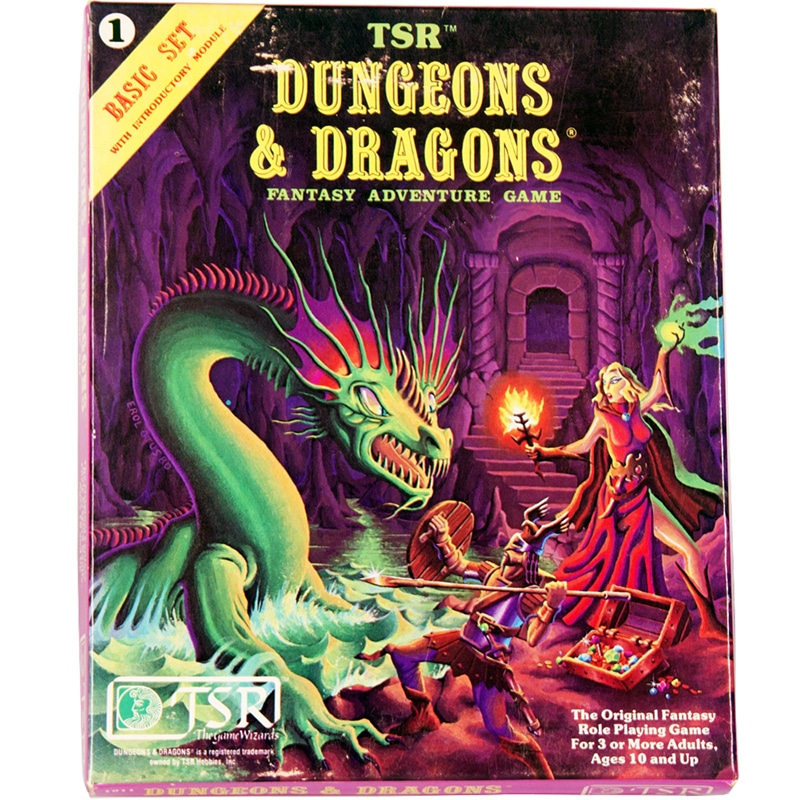Dungeons and Dragons (D&D) is a tabletop role-playing game that has captured the imagination of millions worldwide since its creation in 1974. It offers players a chance to step into the shoes of adventurers in a fantasy realm, where creativity and strategy reign supreme. Whether you're a seasoned player or a complete beginner, D&D provides endless opportunities for storytelling and adventure. This game has grown into a cultural phenomenon, inspiring countless spin-offs, movies, books, and even digital games.
At its core, Dungeons and Dragons is more than just a game—it's a social experience that fosters creativity, teamwork, and problem-solving. Players assume the roles of characters such as wizards, warriors, rogues, and clerics, each with unique abilities and backstories. Together, they embark on quests, battle mythical creatures, and uncover hidden treasures. The Dungeon Master (DM) serves as the storyteller, crafting an immersive world filled with challenges and surprises.
With its rich history and ever-expanding universe, Dungeons and Dragons continues to evolve, captivating new generations of players. From its humble beginnings to its current status as a global sensation, D&D has proven its staying power in the gaming world. In this article, we'll delve deep into the mechanics, history, and cultural impact of Dungeons and Dragons, providing you with everything you need to know to dive into this legendary game.
Read also:Valorant Insolence Mastering The Art Of Competitive Play And Sportsmanship
Table of Contents
- The History of Dungeons and Dragons
- Understanding the Mechanics of Dungeons and Dragons
- Creating Your Character in Dungeons and Dragons
- The Role of the Dungeon Master
- How Dungeons and Dragons Gameplay Works
- Strategies for Success in Dungeons and Dragons
- The Dungeons and Dragons Community
- The Cultural Impact of Dungeons and Dragons
- Resources for Dungeons and Dragons Enthusiasts
- The Future of Dungeons and Dragons
The History of Dungeons and Dragons
Dungeons and Dragons was first published in 1974 by Gary Gygax and Dave Arneson, marking the beginning of a new era in gaming. The game was inspired by tabletop wargames, particularly "Chainmail," but introduced a focus on individual character development and storytelling. Over the decades, D&D has undergone several editions, each refining the rules and expanding the lore.
Evolution of Editions
- Original Edition (1974): The first version of D&D, which laid the groundwork for future iterations.
- Advanced Dungeons and Dragons (1977): Introduced more complex rules and expanded character options.
- Dungeons and Dragons 3rd Edition (2000): Simplified the rules and made the game more accessible to new players.
- Dungeons and Dragons 5th Edition (2014): The current edition, praised for its balance and flexibility.
Today, Dungeons and Dragons remains one of the most popular tabletop games globally, with a dedicated fanbase and a growing presence in popular culture.
Understanding the Mechanics of Dungeons and Dragons
The mechanics of Dungeons and Dragons revolve around dice rolls, character statistics, and decision-making. Players use polyhedral dice, particularly the 20-sided die (d20), to determine the outcomes of actions such as attacks, skill checks, and saving throws. Each character has attributes like Strength, Dexterity, Constitution, Intelligence, Wisdom, and Charisma, which influence their abilities in the game.
Key Components of Gameplay
- Ability Scores: Determine a character's strengths and weaknesses.
- Skills and Proficiencies: Reflect a character's expertise in specific areas.
- Hit Points (HP): Represent a character's health and endurance.
- Spells and Abilities: Allow characters to perform magical or unique actions.
Understanding these mechanics is essential for both players and Dungeon Masters, as they form the foundation of the game's structure and logic.
Creating Your Character in Dungeons and Dragons
Character creation is one of the most exciting aspects of Dungeons and Dragons. Players can choose from various races, classes, and backgrounds to craft a unique adventurer. Each choice affects the character's abilities, playstyle, and story. For example, a half-elf rogue might excel in stealth and deception, while a dwarven cleric could focus on healing and protection.
Steps to Create Your Character
- Choose a race (e.g., human, elf, dwarf).
- Select a class (e.g., fighter, wizard, bard).
- Assign ability scores using the standard array or rolling method.
- Pick a background to add depth to your character's backstory.
- Customize your character's appearance and personality traits.
By investing time in character creation, players can create memorable and engaging personas that enrich the gaming experience.
Read also:Haley Victoria Hunt A Rising Star In The Digital World
The Role of the Dungeon Master
The Dungeon Master (DM) is the backbone of any Dungeons and Dragons campaign. They are responsible for creating the world, controlling non-player characters (NPCs), and presenting challenges for the players. A skilled DM can turn a simple quest into an epic tale, keeping players engaged and entertained.
Responsibilities of a Dungeon Master
- Designing the campaign setting and story arcs.
- Managing encounters and balancing difficulty levels.
- Facilitating role-playing interactions between players and NPCs.
- Adjudicating rules and resolving conflicts fairly.
Being a Dungeon Master requires creativity, adaptability, and strong communication skills. It's a rewarding role that allows individuals to shape the narrative and guide their players through unforgettable adventures.
How Dungeons and Dragons Gameplay Works
Dungeons and Dragons gameplay unfolds through a combination of storytelling, dice rolling, and strategic decision-making. Sessions typically begin with the DM setting the scene, describing the environment and presenting the players with a challenge or opportunity. Players then take turns describing their characters' actions, rolling dice to determine success or failure.
Typical Gameplay Sequence
- DM presents a scenario or challenge.
- Players declare their characters' actions.
- Roll dice to resolve outcomes.
- DM narrates the results and progresses the story.
This cyclical process creates a dynamic and interactive experience, where every decision has consequences and every roll adds excitement.
Strategies for Success in Dungeons and Dragons
To excel in Dungeons and Dragons, players must employ a mix of strategic thinking, teamwork, and creativity. Success isn't solely determined by dice rolls but also by how effectively players collaborate and problem-solve. Here are some strategies to enhance your gameplay:
Key Strategies
- Communicate openly with your party members to coordinate actions.
- Utilize your character's strengths while compensating for weaknesses.
- Plan ahead for potential challenges and have contingency plans.
- Engage in role-playing to enrich the storytelling experience.
By adopting these strategies, players can maximize their enjoyment and increase their chances of achieving their goals within the game.
The Dungeons and Dragons Community
The Dungeons and Dragons community is vibrant and diverse, encompassing players of all ages, backgrounds, and skill levels. Online platforms, conventions, and local gaming groups provide opportunities for enthusiasts to connect, share experiences, and learn from one another. This sense of camaraderie fosters a welcoming environment for newcomers and veterans alike.
Popular Platforms for D&D Enthusiasts
- Roll20: A virtual tabletop platform for online gaming.
- Dungeons and Dragons Beyond: A digital toolset for character creation and campaign management.
- Reddit: Subreddits like r/DnD offer forums for discussion and advice.
Engaging with the community can enhance your gaming experience by providing access to new ideas, resources, and friendships.
The Cultural Impact of Dungeons and Dragons
Dungeons and Dragons has transcended its status as a mere game to become a cultural icon. It has influenced countless works of fiction, inspired the development of video games, and even made appearances in mainstream media. Shows like "Stranger Things" and "The Goldbergs" have featured D&D prominently, showcasing its enduring appeal.
Examples of D&D's Influence
- Inspiring video games such as "World of Warcraft" and "The Witcher."
- Spawning novels, comic books, and animated series based on its universe.
- Being referenced in movies, TV shows, and music.
Its impact extends beyond entertainment, as D&D is increasingly recognized for its educational and therapeutic benefits, promoting critical thinking, social skills, and emotional intelligence.
Resources for Dungeons and Dragons Enthusiasts
For those eager to dive deeper into Dungeons and Dragons, a wealth of resources is available. From official rulebooks to fan-created content, there's something for every level of interest and expertise. Below are some recommended resources to enhance your D&D journey:
Essential Resources
- Player's Handbook: The definitive guide for players, covering rules and character creation.
- Dungeon Master's Guide: A comprehensive resource for Dungeon Masters, including world-building tips and optional rules.
- Monster Manual: A catalog of creatures that can be encountered in the game.
- Podcasts and YouTube Channels: Platforms like "Critical Role" and "The Adventure Zone" offer entertaining and educational content.
Exploring these resources can deepen your understanding and appreciation of Dungeons and Dragons, providing inspiration for your own campaigns.
The Future of Dungeons and Dragons
As Dungeons and Dragons continues to grow in popularity, its future looks brighter than ever. With the release of new sourcebooks, expansions, and digital tools, the game adapts to meet the needs of modern players. Additionally, the increasing mainstream acceptance of tabletop gaming ensures that D&D will remain relevant for years to come.
Wizards of the Coast, the current publisher of Dungeons and Dragons, is committed to expanding the game's reach through innovative initiatives and partnerships. This dedication to innovation and inclusivity ensures that Dungeons and Dragons will continue to inspire and captivate players worldwide.
Conclusion
In conclusion, Dungeons and Dragons is more than just a game—it's a gateway to limitless creativity and adventure. From its rich history to its engaging mechanics, D&D offers something for everyone. By understanding the fundamentals, embracing the community, and exploring the vast resources available, players can fully immerse themselves in this legendary fantasy world.
We invite you to share your thoughts and experiences in the comments below. Whether you're a seasoned veteran or a curious newcomer, your voice adds to the vibrant tapestry of the Dungeons and Dragons community. Don't forget to explore our other articles for more insights into the world of gaming and beyond!

![[100+] Dungeons And Dragons Wallpapers](https://wallpapers.com/images/featured/93rmhug6jl00ttsc.jpg)
